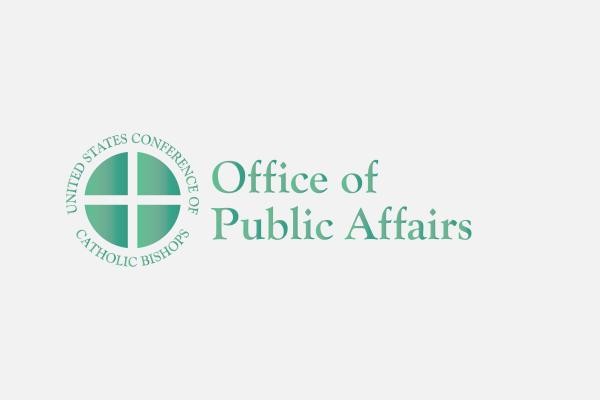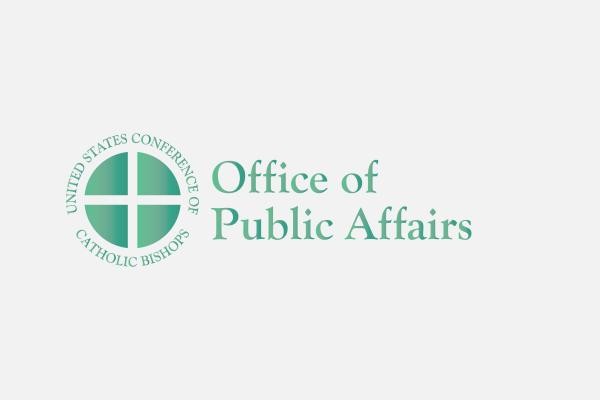Church in Each Place and in All Places Will Be Theme of United Methodist-Roman Catholic Dialogue
WASHINGTON (November 1, 2000) -- The Church in Each Place and in All Places will be the theme of the first full meeting of the united Methodist-Roman Catholic dialogue to be held in Washington in March, 2001.
WASHINGTON (November 1, 2000) -- The Church in Each Place and in All Places will be the theme of the first full meeting of the united Methodist-Roman Catholic dialogue to be held in Washington in March, 2001. Catholic and United Methodist representatives met at the Centro Maria here (October 26-28) to plan for the March event.
Bishop William Skylstad of Spokane cochairs the dialogue for the National Conference of Catholic Bishops. Bishop Walter Klaiber of Frankfort, Germany, cochairs the dialogue for the United Methodist Church. In the absence of Bishop Klaiber at this planning session, the meeting was cochaired by Dr. Bruce Robbins, General Secretary for the General Commission for Christian Unity and Interreligious Concerns of the United Methodist Church.
Most of the time of the meeting was spent reviewing the goal of the dialogue, the purpose of this particular study, and topics that will help the dialogue produce a report to the churches. The overall goal of the dialogue between Methodists and Catholics is the full, visible unity of the churches, full communion. This particular round of the dialogue hopes to contribute to this long range goal by developing a common statement on the Church, its unity, its structures, its local and global dimensions, and its mission in the world.
Papers were presented by Msgr. John Strynkowski of the United States Catholic Conference, and Rev. Dr. Bruce Robbins. In each paper there was overview of the different understandings of the Church among Methodists and Catholics, and the importance of this study for both Methodists and Catholics. The United Methodist Church is a transnational Church with growing communities in Africa and many members in Europe and the Philippines. The Catholic Church is global, with a universal selfunderstanding.
Msgr. Strynkowski traced the developments in the understanding of the Church in history, especially since the second Vatican Council (1962-1965). He raised various questions that might be addressed in the dialogue, such as the role of bishops in the two churches, how studying councils and conferences in the Church can help the study, a possible response to Pope John Paul's invitation to dialogue about he papacy in the 1995 encyclical Ut Unum Sint, the relationship of local church and culture, and the relationship of global and local churches.
Dr. Robbins reviewed the developments of understandings of the Church in history, in the East and West from the early years of Sts.Cyprian and Augustine. He gave an overview of the Reformation differences between Catholic and various Protestant understandings of the Church. He noted, in particular, the emergence of Methodism from Anglicanism in the eighteenth century under the leadership of John Wesley, and that church's adaptation in postrevolutionary America.
The contrasts between Methodist and Catholic understandings of Church are shown in their view of baptism. Catholic initiate new Christians into the universal Catholic Church in which they become full members. It is impossible for Catholics to think of incorporation into Christ without incorporation into a particular Church, with its bishops, Eucharistic communion and worldwide interdependence. Catholics recognize a real, if imperfect communion, among all baptized. Methodists, on the other hand, baptize infants into the universal Church, which transcends - for them - Methodism and Catholicism. It is only later in life that they are initiated into church membership through confirmation. One can be a member of the universal Church, even without membership in a particular denomination.
This planning session spent considerable time in initiating the new members into the dialogue and in reviewing the proposal for the study which had been produced in the previous dialogue and approved by both churches. There was also a discussion of the results of the previous, fifth round, and its publication, Yearning to be One. This congregation oriented resource for stimulating parishes to bring their people into dialogue to stimulate an ecumenical spirituality was published in September, and is available from the US Catholic Conference, and Discipleship Resources of the United Methodist Church.
Earlier United Methodist NCCB dialogues have covered such topics as education, spirituality and ministry, the Eucharist, and euthanasia. There has also been a thirty five years of World Methodist Council dialogue with the Holy See that has produced six reports.
In addition to theological dialogue and spiritual sharing, participants also engaged in regular prayer and worship together. The next meeting will focus on biblical images of the Church, and an exploration of the understanding of the Church from both United Methodist and Catholic theological perspectives.


